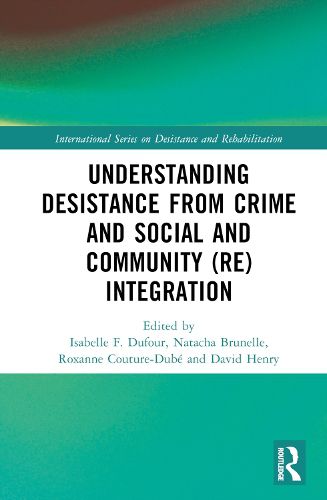Readings Newsletter
Become a Readings Member to make your shopping experience even easier.
Sign in or sign up for free!
You’re not far away from qualifying for FREE standard shipping within Australia
You’ve qualified for FREE standard shipping within Australia
The cart is loading…






This book gives voice to justice-involved Canadian youth and young adults by sharing their views on their journey towards desistance from crime and social and community (re)integration.
Building on interviews with 140 justice-involved youth and young adults (aged 16 to 35), the book explores the challenges they faced while they were under the control of the justice system, the ways in which they navigated the obstacles they came up against, and the support they needed to overcome them. What and who they consider to be facilitators in their journeys is presented. The book also examines experiences of assisted desistance in different settings, such as incarceration, addiction services, and community supervision. What distinguishes this book is its focus on how justice-involved youth and young adults perceive their own experiences of desistance from crime and social and community (re)integration.
An accessible and compelling read, Understanding Desistance from Crime and Social and Community (Re)Integration will be of interest to those engaged with desistance studies, rehabilitation, re-entry, juvenile and adult justice, and recovery from addiction.
$9.00 standard shipping within Australia
FREE standard shipping within Australia for orders over $100.00
Express & International shipping calculated at checkout
This book gives voice to justice-involved Canadian youth and young adults by sharing their views on their journey towards desistance from crime and social and community (re)integration.
Building on interviews with 140 justice-involved youth and young adults (aged 16 to 35), the book explores the challenges they faced while they were under the control of the justice system, the ways in which they navigated the obstacles they came up against, and the support they needed to overcome them. What and who they consider to be facilitators in their journeys is presented. The book also examines experiences of assisted desistance in different settings, such as incarceration, addiction services, and community supervision. What distinguishes this book is its focus on how justice-involved youth and young adults perceive their own experiences of desistance from crime and social and community (re)integration.
An accessible and compelling read, Understanding Desistance from Crime and Social and Community (Re)Integration will be of interest to those engaged with desistance studies, rehabilitation, re-entry, juvenile and adult justice, and recovery from addiction.